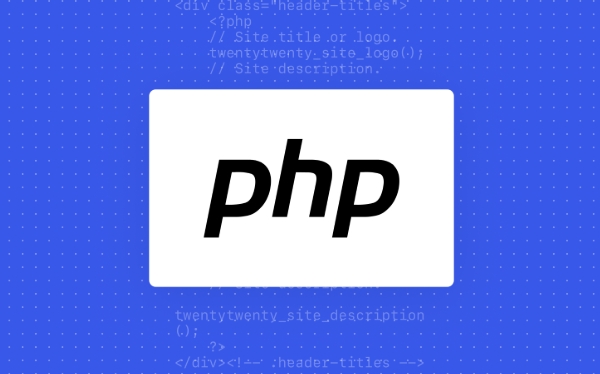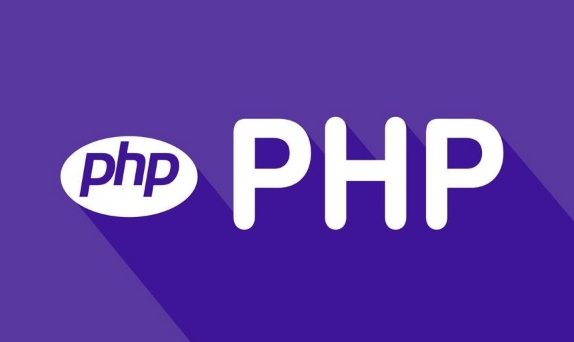The Impact of Block Comments on PHP's Parser and Performance
Jul 27, 2025 am 02:22 AM- Block comments in PHP are processed by the lexer, which scans all content between / and / despite not generating opcodes. 2. This scanning causes a small parsing overhead, especially with large comments, impacting parse time without opcache. 3. With opcache enabled, comments are stripped after compilation, resulting in zero runtime performance cost. 4. Large comments increase file size, affecting disk I/O, memory usage, and tooling performance. 5. Avoid nesting block comments as PHP does not support it, leading to parsing errors. 6. Best practices include using PHPDoc for documentation, deleting dead code instead of commenting it, and keeping comments concise to ensure maintainability and efficiency. Therefore, while block comments are safe for normal use, they should not be overused or abused.

Block comments in PHP—like /* ... */—are commonly used to disable code or add multi-line documentation. While they seem harmless, their interaction with PHP’s parser and potential impact on performance is worth understanding, especially in large-scale applications or performance-critical contexts.

How PHP's Parser Handles Block Comments
PHP’s parser processes source code in a lexical analysis phase before compilation. During this phase, comments—both block (/* */) and line comments (//, #)—are recognized as non-code tokens and are typically discarded before the actual parsing of executable statements.
However, block comments are not ignored during scanning. The lexer must still:

- Identify the opening
/* - Scan every character until it finds the closing
*/ - Validate proper nesting (though PHP does not support nested block comments)
This means the parser does work on block comments—it just doesn’t generate opcodes from them. For very large block comments (e.g., thousands of lines), this scanning adds a small but measurable overhead during script compilation.
Example: A 10,000-line block comment in a file forces the lexer to process 10,000 lines of text it will ultimately discard.

Performance Implications
The performance impact of block comments is generally negligible in production environments if opcache is enabled, but here’s a breakdown of when it matters:
Without OpCache (Development/CLI scripts)
Every request triggers a full re-parse of PHP files. Large block comments increase parse time slightly because the lexer must scan through all comment content.With OpCache (Production)
Once a script is compiled and cached, comments are already stripped from the opcode representation. Subsequent requests use the cached opcodes, so comments have zero runtime performance impact.-
File Size & I/O Overhead
Even if parsing is fast, bloated files with huge comment blocks increase disk I/O and memory usage when loading files. This affects:- Time to read the file from disk
- Memory footprint during parsing
- Version control diffs and tooling performance
Best Practices to Minimize Impact
While block comments are safe for small uses, avoid these patterns:
- ? Use for short explanations or temporary code disable
- ? Don’t comment out large blocks of legacy code—just delete them (use version control instead)
- ? Avoid embedding documentation or SQL dumps in
/* */blocks - ? Use PHPDoc annotations (
/** */) for documentation—tools expect them and they’re structured
Also note: PHP does not support nested block comments. This causes parsing errors:
/* /* This breaks */ */
Bottom Line
Block comments have minimal performance cost in real-world applications thanks to opcache, but they’re not "free" during parsing. The main risks are:
- Increased parse time for huge comments (without opcache)
- Poor code maintainability
- Larger file sizes affecting I/O
So while the parser handles them efficiently, the best practice is simple: keep comments lean, meaningful, and remove dead code entirely.
Basically, don’t fear /* */ for normal use—but don’t abuse them either.
The above is the detailed content of The Impact of Block Comments on PHP's Parser and Performance. For more information, please follow other related articles on the PHP Chinese website!

Hot AI Tools

Undress AI Tool
Undress images for free

Undresser.AI Undress
AI-powered app for creating realistic nude photos

AI Clothes Remover
Online AI tool for removing clothes from photos.

Clothoff.io
AI clothes remover

Video Face Swap
Swap faces in any video effortlessly with our completely free AI face swap tool!

Hot Article

Hot Tools

Notepad++7.3.1
Easy-to-use and free code editor

SublimeText3 Chinese version
Chinese version, very easy to use

Zend Studio 13.0.1
Powerful PHP integrated development environment

Dreamweaver CS6
Visual web development tools

SublimeText3 Mac version
God-level code editing software (SublimeText3)
 Multiline vs. Single-Line Comments: A Strategic Guide for PHP Developers
Jul 27, 2025 am 04:33 AM
Multiline vs. Single-Line Comments: A Strategic Guide for PHP Developers
Jul 27, 2025 am 04:33 AM
Single-line comments (//) are suitable for short, local instructions or debugging, 1. Use // for in-line comments or temporarily disable code; 2. Use // for multi-line comments to provide detailed descriptions of complex logic or comment large pieces of code; 3. Use /*/ to write PHPDoc to implement structured documents and integrate with the IDE; 4. Avoid comments to be obvious code; 5. Always keep comments updated to ensure comments clearly convey intentions rather than just describe operations, thereby improving code maintainability.
 How Modern IDEs Transform PHP Comments into Navigational Tools
Jul 25, 2025 am 04:43 AM
How Modern IDEs Transform PHP Comments into Navigational Tools
Jul 25, 2025 am 04:43 AM
PHPDoccommentsprovidetypehints,enableautocomplete,detecterrors,andsupportnavigationinIDEsbyactingasstructuredmetadata.2.Specialinlinecommentslike//TODOor//FIXMEareparsedintoactionabletasks,allowingdeveloperstonavigate,filter,andtrackworkdirectlyfromt
 Writing Clean File Headers: A Standardized Approach with Multiline Comments
Jul 25, 2025 am 11:13 AM
Writing Clean File Headers: A Standardized Approach with Multiline Comments
Jul 25, 2025 am 11:13 AM
Awell-structuredfileheaderimprovescodereadabilityandcollaborationbyprovidingkeyfileinformationupfront.1.Includethefile’spurpose,author,creationandmodificationdates,version,license,dependencies,andoptionalnotes.2.Useaconsistentmultilinecommentformatli
 Mastering the Nuances of PHP Block Commenting
Jul 26, 2025 am 09:42 AM
Mastering the Nuances of PHP Block Commenting
Jul 26, 2025 am 09:42 AM
PHPblockcommentingisessentialfordocumentinglogic,disablingcode,andcreatingstructureddocblocks;1.Use//formulti-linecommentsbutavoidnesting,asitcausesparseerrors;2.Youcansafelyinclude//commentsinside//blocks;3.Alwayscloseblockcommentswith/topreventunin
 The Perils of Nested Multiline Comments in PHP
Jul 26, 2025 am 09:53 AM
The Perils of Nested Multiline Comments in PHP
Jul 26, 2025 am 09:53 AM
PHPdoesnotsupportnestedmultilinecomments,andattemptingtonestthemcancauseunexpectedcodeexecutionorparseerrors;thefirst/closestheentirecommentblock,soanycodefollowingit—evenifintendedtobecommented—willbeexecuted,leadingtobugsorfatalerrorswhenfunctionsa
 Leveraging PHPDoc Blocks for Superior Code Maintainability
Jul 24, 2025 pm 10:25 PM
Leveraging PHPDoc Blocks for Superior Code Maintainability
Jul 24, 2025 pm 10:25 PM
PHPDocsignificantlyenhancesPHPcodemaintainabilityandclarity.1.Itprovidestypeclarityevenwithoutstricttyping,documentingparameters,returnvalues,andpropertieswithprecision.2.Itdescribescomplexreturntypeslikestructuredarrays,nullablevalues,anduniontypes,
 The Unsung Hero: Enhancing Code Clarity with PHP Multiline Blocks
Jul 25, 2025 pm 02:29 PM
The Unsung Hero: Enhancing Code Clarity with PHP Multiline Blocks
Jul 25, 2025 pm 02:29 PM
PHP's Heredoc and Nowdoc are effective tools to improve code readability and maintainability. 1. Heredoc supports variable interpolation, suitable for dynamic content such as HTML or JSON; 2. Nowdoc does not parse variables, suitable for plain text output; 3. Both avoid the confusion of quotation escapes and string splicing, making multi-line strings clearer; 4. When using it, make sure that the end identifier occupies one line and has no front and back spaces; 5. Direct insertion of untrusted data should be avoided to prevent security risks; 6. Code readability can be enhanced through unified naming separators (such as HTML, SQL). Reasonable use can significantly reduce cognitive load and improve development efficiency.
 From Comments to Contracts: The Power of PHPDoc Annotations
Jul 25, 2025 am 04:41 AM
From Comments to Contracts: The Power of PHPDoc Annotations
Jul 25, 2025 am 04:41 AM
PHPDoccommentsarenotjustfordocumentation—theyserveasstructuredmetadatathatenhancecodereliabilityandmaintainability.1)TheyprovidetypehintsbeyondPHP’snativesyntax,allowingprecisedefinitionslikearrayornullabletypes,whichtoolslikePHPStanuseforstaticanaly







